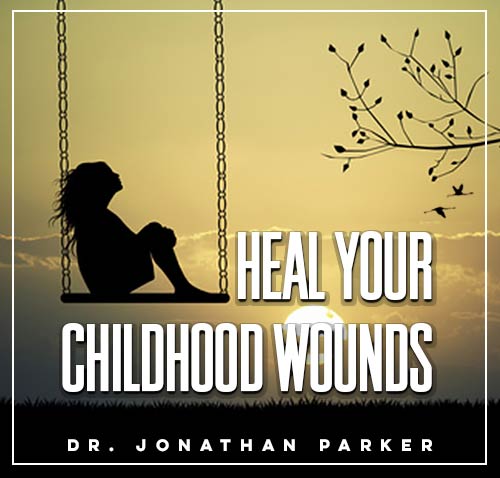Overcome Childhood Anxiety: Find Inner Peace

Before diving in, please note: This post is for informational purposes only. If you’d like to know more about how we approach topics, feel free to check out our friendly Disclaimer Page.
Hey there, amazing readers! 🖐️ Just a quick note: yes, we know there are a lot of ads here. Trust us, we get it—it’s not the prettiest look, but they help us keep this blog alive and kicking. Those pesky little ads cover the costs of all the behind-the-scenes magic, from hosting and tech stuff to creating content we hope you’ll love.
We’re committed to delivering quality posts, and your support (even just sticking around despite the ads) means everything to us. So, bear with us, and thanks for helping us keep the good vibes rolling. Now, on to the fun stuff! 😉
TRANSLATE BUTTON AT THE END OF THE ARTICLE
A Quick Overview
Childhood anxiety can be a challenging issue that many children face, impacting their mental well-being and overall quality of life.
Finding inner peace and overcoming anxiety is crucial to ensure that children can thrive and develop into healthy individuals.
In this article, we will delve into the understanding of childhood anxiety, signs and symptoms to watch for, the impact of anxiety on children, common triggers, coping strategies, building resilience, seeking professional help, the importance of self-care for parents, creating a safe and supportive environment, encouraging open communication, teaching mindfulness techniques, and celebrating progress and successes.
Understanding Childhood Anxiety
Childhood anxiety is a common mental health issue that can manifest in various ways, such as excessive worry, fear, or nervousness.
It can be triggered by a range of factors, including genetics, brain chemistry, personality, and life events.
Children experiencing anxiety may have difficulty controlling their worries, which can interfere with their daily activities and relationships.
Understanding the underlying causes of anxiety in children is essential to provide effective support and interventions to help them overcome their struggles.
Signs and Symptoms to Watch for
Recognizing the signs and symptoms of childhood anxiety is crucial for early intervention and support.
Some common indicators of anxiety in children may include:
Excessive worry or fear about everyday situations
Trouble sleeping or frequent nightmares
Physical symptoms like stomachaches or headaches
Avoidance of certain activities or social situations
Irritability or restlessness
Difficulty concentrating or focusing
Perfectionism and fear of making mistakes
Seeking constant reassurance from adults
Parents and caregivers should observe these signs and seek professional guidance if they suspect that a child is struggling with anxiety.
Impact of Anxiety on Children
Childhood anxiety can have a significant impact on a child’s development and well-being.
It may affect their academic performance, social interactions, and emotional stability.
Children experiencing anxiety may also be at a higher risk of developing other mental health issues, such as depression or behavioral disorders.
Addressing anxiety in children is crucial to prevent long-term consequences and help them build coping skills to navigate life’s challenges effectively.
Common Triggers for Childhood Anxiety
Various factors can trigger anxiety in children, including:
Family conflicts or instability
Academic pressure or performance expectations
Traumatic experiences or events
Bullying or peer pressure
Changes in routine or environment
Genetics and family history of anxiety disorders
Identifying these triggers can help parents and caregivers better understand the root causes of a child’s anxiety and implement targeted interventions to alleviate their symptoms.
Strategies for Coping with Anxiety
There are several strategies that children can use to cope with anxiety and find inner peace, including:
Discover "SUPERFOODS: The Key to Health and Balance🥗" 🌿🌺
Deep breathing exercises and relaxation techniques
Engaging in physical activities or hobbies
Journaling or expressing emotions through art
Practicing mindfulness and meditation
Establishing a routine and structure in daily activities
Seeking social support from friends and family
Setting realistic goals and expectations
Learning problem-solving and coping skills
Encouraging children to utilize these coping strategies can empower them to manage their anxiety effectively and build resilience.
Building Resilience in Children
Building resilience is an essential aspect of helping children overcome anxiety and adversity.
Resilience enables children to bounce back from challenges, develop healthy coping mechanisms, and adapt to changes effectively.
Parents and caregivers can support resilience in children by:
Encouraging independence and autonomy
Providing a safe and nurturing environment
Teaching problem-solving and decision-making skills
Fostering positive relationships and social connections
Promoting self-esteem and self-confidence
Emphasizing the importance of perseverance and growth mindset
By cultivating resilience in children, parents can empower them to face anxiety with strength and determination.
Seeking Professional Help
In cases where childhood anxiety is severe or persistent, seeking professional help from a therapist, counselor, or mental health specialist may be necessary.
These professionals can provide specialized interventions, such as cognitive-behavioral therapy (CBT), exposure therapy, or medication management, to help children manage their anxiety effectively.
It is essential for parents to collaborate with healthcare providers to develop a comprehensive treatment plan tailored to the child’s specific needs and circumstances.
Importance of Self-Care for Parents
Parenting a child with anxiety can be emotionally and mentally draining, making self-care essential for parents’ well-being.
Practicing self-care activities, such as mindfulness, exercise, proper nutrition, and adequate sleep, can help parents manage stress and cultivate resilience.
Engaging in self-care also enables parents to model healthy behaviors for their children and create a supportive environment conducive to overcoming anxiety.
Creating a Safe and Supportive Environment
Creating a safe and supportive environment at home is crucial for helping children feel secure and nurtured.
Parents can foster a sense of safety by:
Establishing open communication channels
Providing unconditional love and acceptance
Setting clear boundaries and expectations
Creating a calming and organized living space
Encouraging healthy lifestyle habits, such as regular exercise and nutritious meals
A safe and supportive environment can significantly impact a child’s ability to cope with anxiety and find inner peace.
Encouraging Open Communication
Open communication is key to addressing childhood anxiety and fostering trust between parents and children.
Encouraging children to express their thoughts, feelings, and concerns in a non-judgmental and supportive manner can help alleviate anxiety and strengthen the parent-child relationship.
Discover "Sports Nutrition: The Importance of Nutrition and Exercise for Overall Health 🥗🏋️"
Parents should actively listen to their children, validate their emotions, and offer reassurance and guidance to promote effective communication and emotional well-being.
Teaching Mindfulness Techniques
Mindfulness techniques can be effective tools for helping children manage anxiety and cultivate inner peace.
Parents can teach children mindfulness practices, such as deep breathing, body scans, and guided imagery, to help them stay present and grounded during moments of stress or overwhelm.
By incorporating mindfulness into daily routines, children can develop self-awareness, emotional regulation, and resilience to navigate anxiety-provoking situations with calmness and clarity.
Celebrating Progress and Successes
Celebrating progress and successes is essential for boosting a child’s confidence and motivation to overcome anxiety.
Parents can acknowledge and praise small achievements, such as facing fears, trying new coping strategies, or expressing emotions openly.
By recognizing and celebrating these milestones, parents can reinforce positive behaviors, build self-esteem, and inspire children to continue their journey towards inner peace and emotional well-being.
Conclusion
Childhood anxiety is a common mental health issue that requires understanding, support, and intervention to help children overcome their struggles and find inner peace.
By recognizing the signs and symptoms of anxiety, identifying triggers, implementing coping strategies, building resilience, seeking professional help when needed, practicing self-care, creating a safe and supportive environment, encouraging open communication, teaching mindfulness techniques, and celebrating progress and successes, parents can empower their children to navigate anxiety effectively and thrive emotionally and mentally.
With a holistic approach and a supportive network, children can overcome anxiety and develop the resilience needed to lead healthy and fulfilling lives.

The Enlightenment Journey is a remarkable collection of writings authored by a distinguished group of experts in the fields of spirituality, new age, and esoteric knowledge.
This anthology features a diverse assembly of well-experienced authors who bring their profound insights and credible perspectives to the forefront.
Each contributor possesses a wealth of knowledge and wisdom, making them authorities in their respective domains.
Together, they offer readers a transformative journey into the realms of spiritual growth, self-discovery, and esoteric enlightenment.
The Enlightenment Journey is a testament to the collective expertise of these luminaries, providing readers with a rich tapestry of ideas and information to illuminate their spiritual path.
Our Diverse Expertise 🌟
While our primary focus is on spirituality and esotericism, we are equally passionate about exploring a wide range of other topics and niches 🌍📚. Our experienced team is dedicated to delivering high-quality, informative content across various subjects ✨.
To ensure we provide the most accurate and valuable insights, we collaborate with trusted experts in their respective domains 🧑🏫👩🏫. This allows us to offer well-rounded perspectives and knowledge to our readers.
Our blog originally focused on spirituality and metaphysics, but we’ve since expanded to cover a wide range of niches. Don’t worry—we continue to publish a lot of articles on spirituality! Frequently visit our blog to explore our diverse content and stay tuned for more insightful reads.







